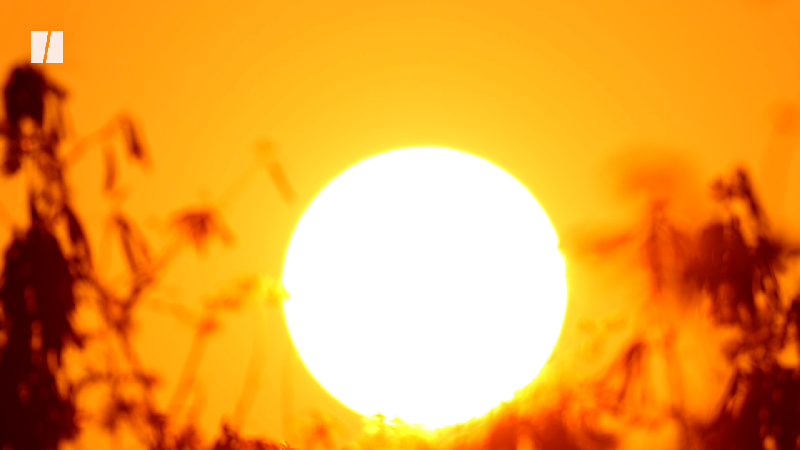
Earth’s average temperature set a new unofficial record high on Thursday, the third such milestone in a week that already rated as the hottest on record.
The planetary average hit 63 degrees Fahrenheit (17.23 degrees Celsius), surpassing the 62.9-degree mark (17.18-degree mark) set Tuesday and equaled Wednesday, according to data from the University of Maine’s Climate Reanalyzer, a tool that uses satellite data and computer simulations to measure the world’s condition.
That average includes places that are sweltering under dangerous heat — like Jingxing, China, which checked in almost 110 degrees Fahrenheit (43.3 degrees Celsius) — and the merely unusually warm, like Antarctica, where temperatures across much of the continent were as much as 8 degrees Fahrenheit (4.5 degrees Celsius) above normal this week.
The National Oceanic and Atmospheric Administration on Thursday issued a note of caution about the Maine tool’s findings, saying it could not confirm data that results in part from computer modeling.
“Although NOAA cannot validate the methodology or conclusion of the University of Maine analysis, we recognize that we are in a warm period due to climate change,” NOAA said.
Still, the Maine data has been widely regarded as another troubling sign of climate change around the globe. Some climate scientists said this week they weren’t surprised to see the unofficial records.
Robert Watson, a scientist and former chairman of the UN’s Intergovernmental Panel on Climate Change, said governments and the private sector “are not truly committed to address climate change.” Nor are citizens, he said.
“They demand cheap energy, cheap food and do not want to pay the true cost of food and energy,” Watson said.
___
Borenstein reported from Washington, and O’Malley from Philadelphia.
___
Associated Press climate and environmental coverage receives support from several private foundations. See more about AP’s climate initiative here. The AP is solely responsible for all content.
Related
- SEO Powered Content & PR Distribution. Get Amplified Today.
- PlatoData.Network Vertical Generative Ai. Empower Yourself. Access Here.
- PlatoAiStream. Web3 Intelligence. Knowledge Amplified. Access Here.
- PlatoESG. Automotive / EVs, Carbon, CleanTech, Energy, Environment, Solar, Waste Management. Access Here.
- BlockOffsets. Modernizing Environmental Offset Ownership. Access Here.
- Source: https://www.huffpost.com/entry/hottest-week-globally_n_64a7f085e4b07252cc113207
- SEO Powered Content & PR Distribution. Get Amplified Today.
- PlatoData.Network Vertical Generative Ai. Empower Yourself. Access Here.
- PlatoAiStream. Web3 Intelligence. Knowledge Amplified. Access Here.
- PlatoESG. Carbon, CleanTech, Energy, Environment, Solar, Waste Management. Access Here.
- PlatoHealth. Biotech and Clinical Trials Intelligence. Access Here.
- Source: https://zephyrnet.com/for-the-third-time-this-week-earth-sets-an-unofficial-heat-record/


How ‘Dune’ Became a Beacon for the Fledgling Environmental Movement—and a Rallying Cry for the New Science of Ecology
Dune, widely considered one of the best sci-fi novels of all time, continues to influence how writers, artists, and inventors...